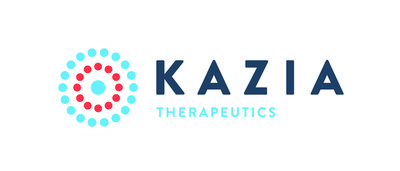 |
SYDNEY, June 1, 2020 /PRNewswire/ -- Kazia Therapeutics Limited (ASX: KZA; NASDAQ: KZIA), an Australian oncology-focused biotechnology company, is pleased to share a poster presentation of interim data from the ongoing phase II study of paxalisib (formerly GDC-0084) in glioblastoma, the most common and most aggressive form of primary brain cancer. Top-line data from this interim analysis was previously announced to ASX on 7 April 2020.
Key Points
Professor Patrick Wen from Dana-Farber Cancer Institute, who was the lead author on the poster presentation, commented, "These are encouraging early signals. We anticipate paxalisib will move into a pivotal study later this year and look forward to reviewing further data as it emerges."
Kazia CEO, Dr James Garner, added, "We are pleased to be able to share these extremely promising data with clinicians and partners, albeit in the novel forum of a virtual academic meeting. As we have previously said, the gold standard for any new cancer drug is the ability to extend life, and we are seeing evidence from this study that paxalisib may achieve this very challenging goal. We expect to begin recruitment to the international GBM AGILE pivotal study in the second half of this year. In the meantime, we expect several further data read-outs over the next two quarters."
Summary of Paxalisib Data in Comparison to Temozolomide (existing standard of care) |
||
Temozolomide |
Paxalisib (Stage 1 of Phase II Study) |
|
Progression-Free Survival (PFS) Measures ability of a drug to slow |
5.3 months |
8.4 months |
Overall Survival (OS) Measures ability of a drug to |
12.7 months |
17.7 months |
ASCO Conference
The American Society of Clinical Oncology Annual Meeting is one of the premier scientific conferences in the world for research and treatment of cancer. It is typically attended by more than 30,000 clinicians, researchers, industry executives, and patient advocates. In 2020, the meeting is being conducted in a virtual format due to the ongoing COVID-19 pandemic.
The Kazia data is presented in Abstract 2550 (NCT03522298). In addition to Kazia's paxalisib poster, abstracts are being presented by the Global Coalition for Adaptive Research on the GBM AGILE clinical trial (Abstract TPS2579; NCT03970447), and by the Alliance for Clinical Trials in Oncology on their genomically-guided study in brain metastases (Abstract TPS2573; NCT03994796), in which paxalisib is one of three participating drug candidates.
The Kazia poster is available for download via the Kazia website at https://kaziatherapeutics.com/researchpipeline/publicationspresentations
Background
The reported overall survival (OS) figure of 17.7 months represents a strong signal of clinical efficacy. The existing, FDA-approved standard of care, temozolomide, is associated with an OS of 12.7 months in this patient population[1]. Comparison between different studies is always imprecise, but the magnitude of the numerical difference provides powerful evidence that treatment with paxalisib may extend life in this patient group.
The reported progression-free survival (PFS) figure of 8.4 months compares favourably with the PFS of 5.3 months that is associated with temozolomide in this patient population. In April 2020, Kazia reported an interim analysis showing a PFS of 8.5 months in the overall study population (n=30). This poster only reports the first stage of the study (n=9), and the figure in this part of the study was 8.4 months.
Before losing patent protection, temozolomide achieved peak sales in excess of US$ 1 billion per annum, which provides an indication of the commercial opportunity associated with a new treatment for glioblastoma.
The Kazia study is being conducted in newly-diagnosed glioblastoma patients, following surgery and radiotherapy. Only those patients with an unmethylated MGMT promotor have been recruited. This genetic marker renders patients effectively resistant to temozolomide and is present in approximately two-thirds of patients.
Thirty patients were enrolled to this study, comprising 9 in Stage 1, and 21 in Stage 2. Data reported here are provisional figures from Stage 1 (for OS) and from the entire study population (for PFS), but may change as ongoing patients proceed through the study. The study has been conducted at leading centers of excellence in the United States.
The safety of paxalisib remained broadly consistent with prior experience, with hyperglycaemia (raised blood sugar), oral mucositis (mouth ulcers), and low-grade rash among the most common drug-related toxicities.
In addition to this phase II study in glioblastoma, four other studies are underway with paxalisib in different forms of brain cancer, and it is anticipated that several of these will provide initial efficacy data during CY 2020.
Investors are referred to Kazia's announcement of 7 April 2020 for further discussion of these results.
Next Steps
The phase II study remains ongoing, with approximately half of the total enrolled patient population still receiving drug at the time of analysis and a number of additional patients still in follow-up. Kazia expects to complete the study in 1H CY2021.
Kazia had previously had an abstract accepted the AACR Annual Meeting, which had originally been scheduled for April 2020. This meeting has now been rescheduled to several virtual meetings, and Kazia will present a poster at the 'AACR Virtual Annual Meeting II' on 22-24 June 2020.
[1] ME Hegi, A-C Desirens, T Gorlia, et al. N Engl J Med (2005); 352:997-1003 |
Logo - https://photos.prnasia.com/prnh/20171120/1996749-1LOGO?lang=0